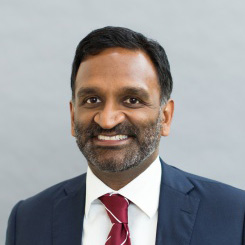After almost twenty years in Rome, I’ve learned not to insist too much on the Vatican reading the USA with any kind of accuracy, so I usually don’t feel the need to comment on every little misunderstanding coming from the Roman Curia. It would take up way too much time and make me grumpier than I already am.
But there are times when something must be said. August, for example, when you’re one of the few non-tourists around and nothing else is happening. Or yesterday, when this Crux piece reported that a “Top Vatican official says Americans misunderstand the pope’s social agenda“.
If the author had gone out of her way to contact an American economist in Rome who used to work in the office Cardinal Turkson heads and now works for an institute devoted to the economic education of religious leaders, here’s what he would have said.
I know and like Cardinal Turkson very much. Unlike the average Curial official, he has first-hand experience of the United States both personally and professionally. He can attest to the great diversity of views among Americans. When he says “many accuse [the pope] of being socialist or communist”, however, he is surely exaggerating. It would have been helpful if he identified who these “many” (or more likely, some or few) are.
Such rhetoric aside, other remarks made at the Vatican press conference revealed more serious misunderstandings about the market economy which, if put into practice, would do real harm to those who are already poor and vulnerable to abuses of power.
Cardinal Turkson says Americans confuse the social economy with socialism. Again, it would be nice to know who actually does this. All economies are, by definition, social; there is no market where an individual can buy and sell with himself. The theoretical contrast is between free and planned economies, with actual ones falling somewhere along the continuum between them.
Socialism or the completely planned economy of communism requires the public ownership of the means of production, i.e., no private property. No pope, including Pope Francis, has ever recommended socialism, let alone communism; some, such as Popes Leo XIII, Pius XI and St. John Paul II, have actually condemned them.
The cardinal unfortunately reverts to a simplistic caricature of Adam Smith’s “invisible hand”, contrasting it with the “visible hand of an economy which is able to serve all members of the community well.” (He could have also recalled Leo’s warning about the “rough hand” of the State.) Smith’s point was that demanding people to ignore their self-interest, as moralists are wont to do, is unrealistic and socially destructive, encouraging hypocrisy rather than virtue. As a modern, Smith thought it better to lower the bar of morality a bit and achieve better results.
Contra Smith, it is simply utopian to expect “a new economy” (designed, implemented and regulated by whom?) to solve the problem of human nature or what Christians normally refer to as “sin.” It is fully understandable and deeply Christian to say we will not rest until “our economic and social system no longer produces even a single victim, a single person cast aside.” We must also be aware of the tendency of such noble visions to go awry. Aiming to “fix” the human problem, totalitarian systems eventually result in umitigated tragedy and disaster.
I can only hope that the young economists and entrepreneurs who are invited to the “Economy of Francesco” event in Assisi next March have more common sense and a better understanding of how markets function. Maybe some real Americans will be asked to attend.
(Photo credit: Wikicommons by Francesco Gabrielli)

